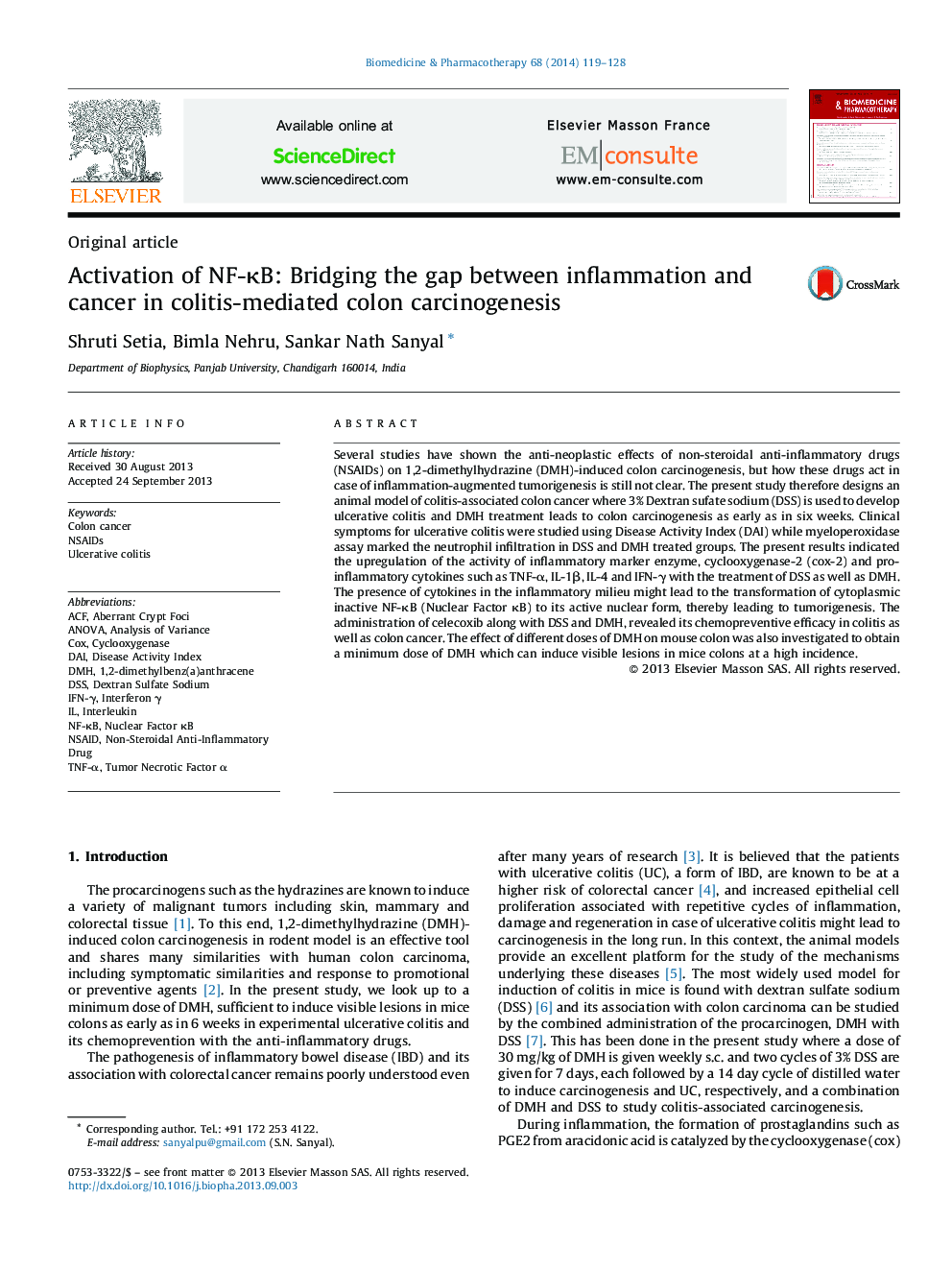| Article ID | Journal | Published Year | Pages | File Type |
|---|---|---|---|---|
| 2525125 | Biomedicine & Pharmacotherapy | 2014 | 10 Pages |
Several studies have shown the anti-neoplastic effects of non-steroidal anti-inflammatory drugs (NSAIDs) on 1,2-dimethylhydrazine (DMH)-induced colon carcinogenesis, but how these drugs act in case of inflammation-augmented tumorigenesis is still not clear. The present study therefore designs an animal model of colitis-associated colon cancer where 3% Dextran sufate sodium (DSS) is used to develop ulcerative colitis and DMH treatment leads to colon carcinogenesis as early as in six weeks. Clinical symptoms for ulcerative colitis were studied using Disease Activity Index (DAI) while myeloperoxidase assay marked the neutrophil infiltration in DSS and DMH treated groups. The present results indicated the upregulation of the activity of inflammatory marker enzyme, cyclooxygenase-2 (cox-2) and pro-inflammatory cytokines such as TNF-α, IL-1β, IL-4 and IFN-γ with the treatment of DSS as well as DMH. The presence of cytokines in the inflammatory milieu might lead to the transformation of cytoplasmic inactive NF-κB (Nuclear Factor κB) to its active nuclear form, thereby leading to tumorigenesis. The administration of celecoxib along with DSS and DMH, revealed its chemopreventive efficacy in colitis as well as colon cancer. The effect of different doses of DMH on mouse colon was also investigated to obtain a minimum dose of DMH which can induce visible lesions in mice colons at a high incidence.
